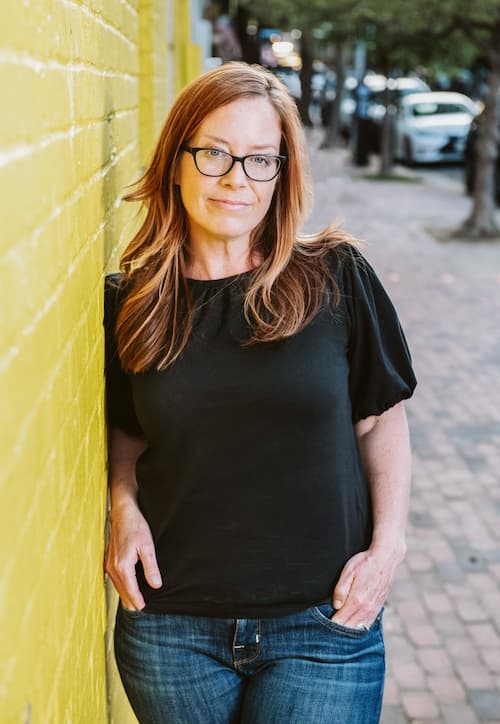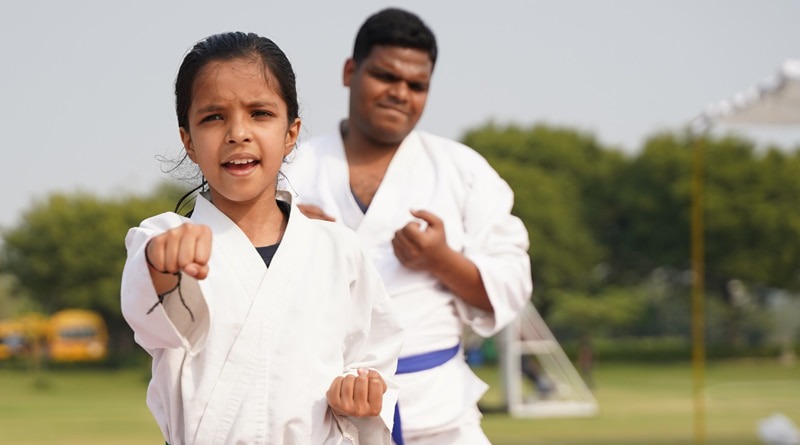
What I Wish I Knew When I Began Raising an Autistic Child
By Jessica Kidwell
Tips From My Autism Parenting Journey
Parenting is hard. And if your child has a disability, neurological or otherwise, that adds another layer of complexity to a journey that was already full of uncertainty and points of peril. I have found the best way to navigate this journey is to share my experience as well as learn from others so that I can try to fill in the map a bit more. Not only to help myself decide which paths to take, but also for the travelers who come after us so they will have more information available to them for their journey ahead. So, for Different Brains, I’d like to share a few things I wish I had known at the beginning of my journey.
Understanding Neurodiversity
I have come to learn that neurodivergence should not be seen as a disorder that needs to be cured. Instead, with the guidance of many incredible self-advocates, I have evolved my thinking to embrace a term originated in the late 1990s by sociologist Judy Singer: neurodiversity. A combination of the words “neurological” and “diversity”, Singer asserted that neurological differences are a natural variation of the human genome and thus should be recognized and respected as a social category on par with gender, ethnicity, sexual orientation, or disability status. It’s a basic belief that different people think differently, and that no one way of thinking is “right” or “wrong”. This has helped me tremendously on the days when I feel the most overwhelmed by all the ways our society is set up to see my child as a puzzle piece that doesn’t quite fit.
Once you realize that the world is a big giant neurodiverse umbrella covering us all, you can begin to see that there is no single “best” path to take on your parenting journey. The freedom of that flexibility is best exercised by becoming voraciously curious. If there is no single answer, then there is no single source for that answer. Instead of falling into the well-worn path of must do’s, should do’s, and absolutely DO NOT DO; you can seek the path that fits your child, your family, your circumstance, and your resources.
The LR Lens
In this age where information is readily available and easily disguised as expert or generally accepted opinion, it can be hard to decipher who and where parents should turn to guide their journey. That is why I strongly encourage parents to put on their “LR” lenses when seeking information about options for your child. And I’m not talking about left and right, I’m talking about “language” and “representation”. Every single resource you are considering for your child should be measured by the language used and the representation of those who developed and manage the resource.
For “Language”, I am looking to see if the resource uses person-first or identity-first language.
Person-first language was widely used in the early days of the disability movement at a time when a disability was seen as something that makes a person “less” in some way. It was used as a way to highlight the person separately from their disability. “A child with autism” would be person-first language because it emphasizes the personhood of the child before identifying the autism of the child.
Identity-first language sees the disability as an important and permanent part of the person’s identity. “An autistic child” would be identity-first language because it emphasizes that the child is, and will always be, autistic. After reading Eric Garcia’s book, “We’re Not Broken: Changing the Autism Conversation”, I learned that many self-advocates prefer identity-first language, therefore I have adopted that language as my default and am more drawn to resources that use identity-first language. However, I do not immediately discount a resource if person-first language is used, because not all person-first language is problematic. I do look further into the resource to determine if they are aligned with my values.
For “Representation”, I am looking at the voices who are contributing to the conversation. If there are zero neurodivergent contributors, I move on from that resource. With 1 in 5 individuals in the world identifying as having one or more neurodivergence there is no reason this minority group should be excluded from a seat at a table where any issue involving them is being discussed. And this stretches into the make-up of the board and employees of any organization who claims to represent, or advocate for, the neurodivergent community. I want to see neurodivergent individuals participating and leading these organizations. Not at the exclusion of all others, but as a fundamental core of that organization. With the technology advances that have been made in alternative communication devices and the accommodations that have been normalized for group participation, any exclusion of neurodivergent representation in 2022 is problematic at best. As parents of neurodivergent children who will become neurodivergent adults, we must seek out organizations that see our children as future contributors to a rich neurodiverse culture. We are only the temporary holder of our child’s diagnosis. Regardless of how much time and energy we spend learning and understanding and advocating and educating on behalf of our child, it is not in fact our diagnosis. It belongs to them. And our hope should be that, one day, our children will be the self-advocates that new parents will be listening to in the future.
Your Feelings Matter
Last, but perhaps most importantly, I would want someone to tell me that no matter what I’m feeling, it is okay. Relieved? Overwhelmed? Numb? Confused? Scared? Angry? Grief? Every single one of these, and whatever else I missed, is okay. The obsessive tendency of our current parenting culture to “focus on the bright side” and to “find the good” is deeply detrimental to ourselves and to our children. And the only destination you reach if you use toxic positivity as your compass for your parenting journey is one filled with burnout and disappointment. Your feelings are valid. Your worries are valid. Your fear is valid. The more we, as parents, allow ourselves to acknowledge the wide range of emotions that are a part of parenting, the faster we move through those emotions. The more we try to deny, ignore, or repress any negative emotion the more likely it stays stuck somewhere, whether we acknowledge it or not.
As parents, when we lay down each night with the weight of second guessing pressing upon us, the gift we can give ourselves is the belief that we have done the best we could for our children and for ourselves with the knowledge that we had at the time. And that we always carry a willingness to change what is “best” as we continue to learn more. In the end, that should be the measure of a journey worth taking.

Jessica Kidwell is the host of the podcast, Neuroversity, a space to learn about and elevate the stories of the neurodivergent community. She is also the co-host of the podcast We Should Talk About That, which aims to connect people by having hard conversations about uncomfortable topics in a vulnerable and safe way. Prior to podcasting, she has been a freelance writer, a preschool teacher, and has her Master’s in Health Administration. She lives in Alexandria, VA with her husband and two children. To learn more about Jessica and her work, visit her at: www.neuroversitypod.com




